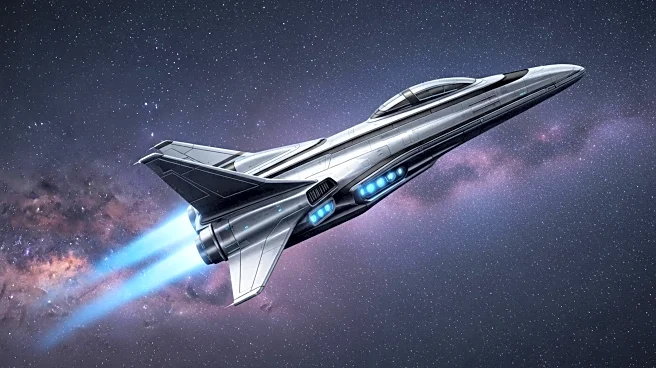What's Happening?
SpaceX's latest Starship rocket successfully completed a controlled splashdown in the Indian Ocean after an hour-long flight, marking a significant achievement for the company. The test flight included a dynamic banking maneuver, allowing the rocket to approach a landing tower for potential future catches by robotic arms. The booster also performed a controlled splashdown with a 13-engine burn. This success is crucial for NASA's moon plans, which rely on Starship to land astronauts on the lunar surface. The test flight demonstrated the rocket's reliability and potential for repeatability, paving the way for future missions.
Why It's Important?
The successful test flight of SpaceX's Starship is a critical step in proving the rocket's capabilities for NASA's lunar missions. With a $4.2 billion contract on the line, SpaceX must demonstrate the safety and reliability of its launch-and-return maneuvers. The success of this test flight boosts confidence in the rocket's ability to support NASA's moon plans, which face competition from the Chinese space program. The achievement also supports SpaceX's long-term goals of sending humans and cargo to Mars, potentially revolutionizing space travel and exploration.
What's Next?
SpaceX plans to continue testing and refining the Starship rocket, with future versions expected to include upgrades essential for long-duration missions in space. The company aims to develop docking adapters and other hardware changes for orbital refueling, a complex process involving two Starships docking in orbit. These advancements are crucial for enabling human missions to the Moon and Mars. SpaceX's success in these endeavors could position the company as a leader in the commercial space industry, with potential implications for international space policy and cooperation.
Beyond the Headlines
The success of SpaceX's Starship test flight has broader implications for the space industry, including potential ethical and environmental considerations. The rapid advancement of reusable rocket technology could lead to increased space traffic and potential impacts on Earth's atmosphere. Additionally, the prospect of human settlement on Mars raises questions about the ethical implications of colonizing another planet. These developments could also influence international space policy and cooperation, as countries navigate the challenges and opportunities of space exploration.










